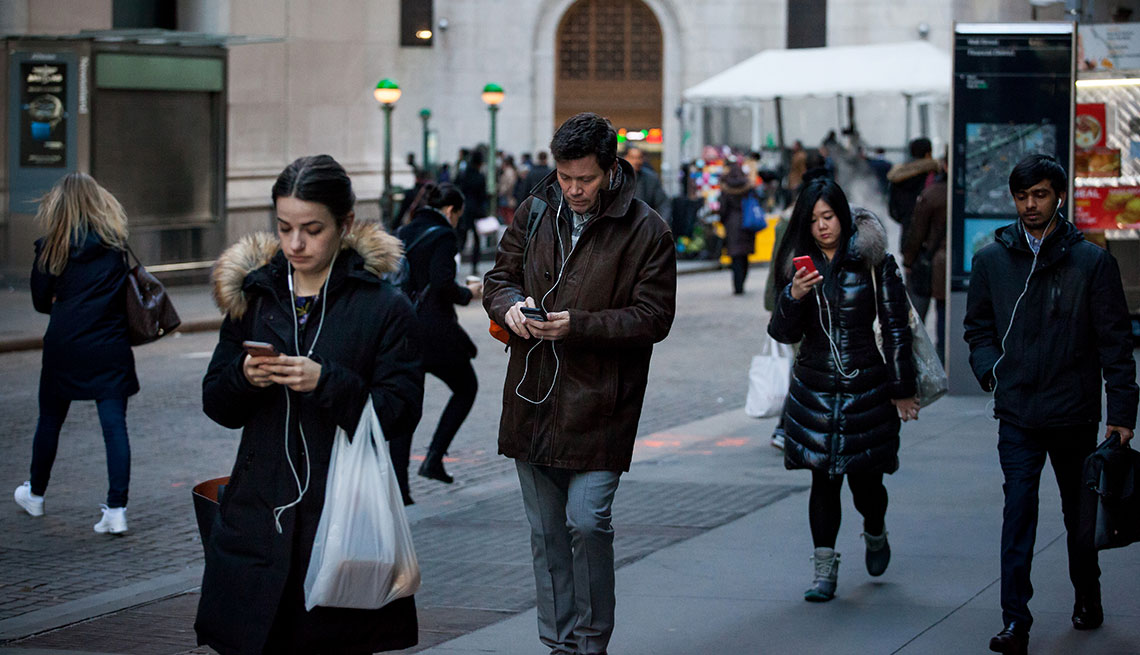Play all audios:
This potential advantage in focus can help not only with accomplishing a task but also with learning new things. There’s a certain amount of boredom that comes with learning, and younger
workers may have greater difficulty devoting their energies to tedious tasks, says Harvard professor Joe DeGutis, coauthor of a study on sustained attention. FINDING FOCUS “Individuals in
their 50s and 60s are quite adept at motivating themselves to stay focused,” DeGutis says. “This motivated attention can result in — compared with younger adults — less mind wandering.”
Another way of looking at it: “We see the merits of sticking with a task until completion,” says Patty Ceglio, HR strategist for CoolWorks, a site that connects many older workers with
seasonal jobs. Bob McCann sees this dynamic play out in his job restoring furniture at Iron Gate Antiques in Bluemont, Va. “Sometimes I’ll work for five hours nonstop,” he says. He
attributes his ability to concentrate in part to a 26-year career in the Marines. “One of the first things they teach you is attention to detail.” “I get a lot of emails, so I will take
breaks and check on it, rather than have it beeping and chirping at me every 10 or 15 minutes,” he says. Those distractions, he’s found, affect younger workers more than older workers. “The
young kids that I’ve worked with have got the attention span of an ant,” says McCann, who also has worked as an executive at a technology company. “They can’t focus because they’re jumping
between things. You can’t be successful if your nose is stuck in your phone all day.” SLOWER PROCESSING, FEWER FILTERS This doesn’t mean that older adults have all the mental advantages. The
processing speed of our brains starts to decline at an early age — around 24, according to a study at Simon Fraser University in British Columbia. And with processing decline comes a
diminishing ability to switch from one task to another or manage interruptions. Older adults also struggle to filter out irrelevant information, Gazzaley says, which is why conversations are
often challenging in a busy restaurant. But while distractions may be difficult on the brain, focused activity — whether it’s working, gardening, volunteering or going to the gym — can have
the opposite effect. In a study by researchers at the University of Texas and the University of Alabama, older adults who stayed busy outperformed their less occupied counterparts on
cognitive tests. Despite his job as a computer science professor at Georgetown University in Washington, D.C., Cal Newport lives a mostly analog life. He reads print newspapers. He turns
off his computer at 5 p.m. and doesn’t have social media accounts. By blocking digital distractions, Newport has found time to write four books, earn his Ph.D., write numerous peer-reviewed
academic papers and spend summer evenings listening to baseball games on the radio. “A life defined by fragmented attention,” he says, “can produce exhaustion and anxiety.” A DISTRACTED
FUTURE That ability to perform deep work — focusing without distraction on a cognitively demanding task — will become an important job skill, Newport says. People also seem happier when
performing deep work, he says — writing an important report or creating something with depth, as opposed to a task like answering emails. “In my experience, people in their 50s and 60s often
regain a deep-work ability faster than younger people,” he says. “The big difference is that if you’re older, you spent most of your life without the level of intense and constant
distraction — something most young people have never experienced.”

